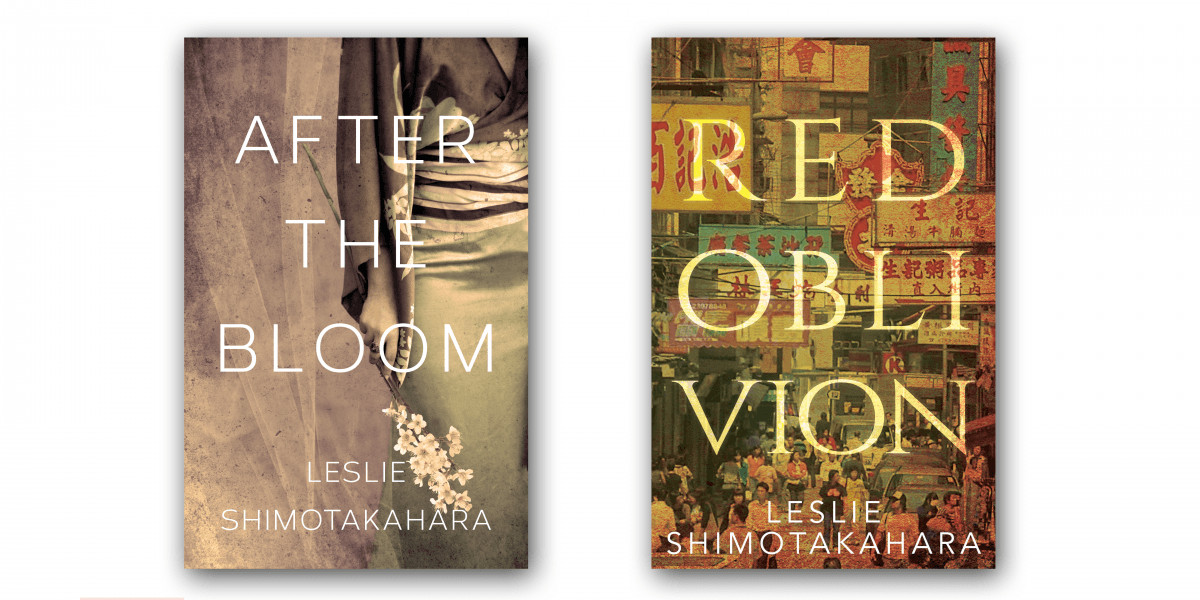Leslie Shimotakahara’s memoir The Reading List won the Canada-Japan Literary Prize in 2012, and her fiction has been shortlisted for the KM Hunter Artist Award. She has a PhD in English from Brown University. Although Leslie wanted to be a writer since childhood, she ended up taking a slightly nerdy detour through the academic study of literature, writing her dissertation on the relationship between American regionalism and modernism in the fiction of Edith Wharton, Willa Cather, William Faulkner, and Ralph Ellison. She had a short-lived career as an English professor, before it became clear that what she really wanted to do was pursue her original passion, creative writing. Her debut novel After the Bloom, which draws upon her Japanese-American and Japanese-Canadian family history, received a starred review in Booklist, was praised by the National Post as a “deep and beautiful story,” and appeared on Bustle’s, Reading Group Choices’ and the 49th Shelf’s lists of spring/summer picks for 2017. In 2018, she served on the jury for the Governor General’s Non-Fiction Award. Her next novel Red Oblivion, a literary thriller set in Hong Kong, will be published in fall 2019. Leslie lives in Toronto.
Read BookTrib’s review of Leslie’s book, Red Oblivion.

BOOKS:
The Reading List: Literature, Love and Back Again (2012)
After the Bloom (2017)
Red Oblivion (2019)
Biggest literary influencers:
Kazuo Ishiguro, Edith Wharton, Alice Munro, Julian Barnes, Kate Atkinson
Last book read:
Drive Your Plow Over the Bones of the Dead by Olga Tokarczuk
The book that changed your life:
I’m not sure that I can identify a single book in this category, because my reading tastes are quite eclectic and change significantly from year to year, depending on what I’m working on. If you were to ask me this question a year from now, I’d probably give a completely different answer. That said, Julian Barnes’ The Sense of an Ending is one book that stands out in my mind. How do we remember the past, so as to gloss over our bad behaviors and not so proud moments? How do we look back on our younger selves through an ever-present, rose-tinted lens of nostalgia? This spare, elegant novel explores these timeless questions through a masterful plot about the rivalries of British school boys that has all the forward momentum and page-turning delight of an excellent detective novel.
Your favorite literary character:
Del Jordan, the narrator of Alice Munro’s Lives of Girls and Women. When I first read this collection of linked short stories during my teen years, something about the fresh, offbeat nature of Del’s voice captivated me and has stayed with me over the years. The book puts under the microscope an array of vivid, eccentric characters, drawn from small town life — Del’s mother chief among them — and explores the complex, turbulent dynamics of mother-daughter relationships. And I love Del’s keen eye for the absurdities of sexual experience, as she moves through adolescence with resilience, and pushes toward her artistic awakening as a writer. This is coming-of-age book like no other.
Currently working on:
I’m presently working on my third novel, an historical novel set during the First World War on the Queen Charlotte Islands in British Columbia. It was during this time that the Canadian government began an aggressive logging campaign of this remote area to access the Sitka spruce trees that were badly needed for the Allies’ fighter planes in Europe. This novel is partly inspired by the life of my late grandmother, who grew up on the Queen Charlotte Islands; she told me many vivid tales about her youth, particularly concerning the racial tensions that Japanese-Canadians faced. In the 1890s, her father — my great-grandfather — had immigrated from Japan to British Columbia, where he worked in the fishing and logging industries; he kept a diary about his early days of adventure, which I’m finding to be a useful source of inspiration, too.
Words to live by:
“‘There’ is no better than ‘here.’” — The Rules for Being Human (handed down from ancient Sanskrit)
Advice to new and aspiring authors:
Read and learn from the authors you love. Read their work closely, thinking about why and how their writing exerts such a hold on your emotions. Stick to a regular writing habit, as much as possible, even if it means making use of small pockets of time.
Articles / Reviews:
Kirkus Reviews
Nikkei Voice
Book List Online
National Post
Bustle

